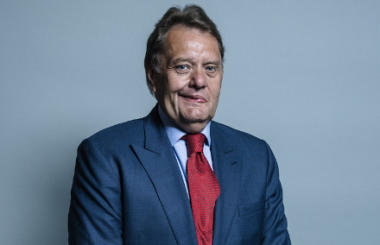Twenty Conservative MPs have complained to the Charity Commission about the Runnymede Trust, and one asked the government to stop those “promulgating weird, woke ideas”.
During a debate in the House of Commons on the Commission on Race and Ethnic Disparities, also referred to as the Sewell Report, Conservative MPs raised concerns about the Runnymede Trust, which was one of the early critics of the report’s findings.
The Sewell Report has been widely criticised, including by the United Nations and a group of charitable foundations, but the government has stood by it.
Charity leaders have hit back with a joint statement of solidarity and drawn attention to a recent blog by the Charity Commission’s chief executive about the sector’s right to campaign.
Complaints about the Runnymede Trust
Sir John Hayes, Conservative MP for South Holland and the Deepings told colleagues that he and 19 others had written to the Charity Commission to complain about how the Runnymede Trust had treated those involved in the Sewell Report.
He said the charity's position “frankly, reflects the outrage of those who have had their long-standing bourgeois liberal prejudices challenged”.
Then he asked the minister for “assurance” that she will speak to colleagues in government, “to stop the worthless work — often publicly funded — of organisations that are promulgating weird, woke ideas and that, in doing so, are seeding doubt and fear and, more than that, disharmony and disunity”.
For the year to December 2019 Runnymede had a total income of £480,000, including nearly £15,000 from government grants.
Kemi Badenoch, equalities minister, responded: “It is important that we in government do not inadvertently promote people who are pushing divisive narratives, and I will look into his request and see what we can do across the house and across government.”
Disagreement between Runnymede and EHRC
Badenoch also drew attention to a public dispute between Runnymede and the statutory non-departmental public body that monitors and enforces the UK’s equality laws.
She said: “The Equality and Human Rights Commission (EHRC) has written an open letter to the Runnymede Trust. In its letter of 12 April, its chair states that the Runnymede Trust made ‘unsubstantiated allegations’ about the EHRC.”
Badenoch added: “I was really shocked to read the commissioners’ letter and to learn that the Runnymede Trust had even asked — or certainly implied — that the EHRC should be defunded, which is surely the opposite of what a charity focused on improving race relations should want, and the complete opposite of its objectives.”
The EHRC letter, published earlier this month, is a response to an open letter by Runnymede.
Runnymede’s open letter had claimed the EHRC’s independence had been “eroded”. It also said that EHRC should not get “more funding for the EHRC simply to lead paper-based investigations”.
The EHRC emphasised that it is independent of government and its board members are appointed through the public appointments process, in the same way that Charity Commission board members are appointed.
It also highlighted its recent regulatory activity and said: “We took legal action regarding the Ruby Williams case about afro hair. We therefore seek to understand the grounds for your allegation that we only lead paper-based investigations as well as your assessment that our work does not constitute tangible action.”
Statement of solidarity
Earlier this week Runnymede issued a statement saying it looked like the Charity Commission was being “weaponised” by MPs.
Yesterday several sector leaders signed a statement of solidarity co-ordinated by ACEVO.
They said: “Many charities exist because the state has failed and a clear example of the failure of the state is a failure to dismantle race inequality in Britain.”
Charities also highlighted other examples of MPs calling on the charity regulator to intervene “when charities have sought to raise awareness about or tackle the issues that are harming people that MPs are elected to serve”.
They added: “Many of the issues that charities deal with are political, not party political (which is against charity law) but political in the sense that they are issues of the people.”
Finally, charities complained that a range of measures, such as the Lobbying Act, were making it harder for charities to advocate properly.
“Civic action is more constrained in the UK than it is in neighbouring countries like the Republic of Ireland and fellow G7 countries like Germany and Canada,” the said.
ACEVO said it will be discussing the issues with people at the Department for Digital, Culture, Media and Sport, which is responsible for government charity policy.
Related articles












